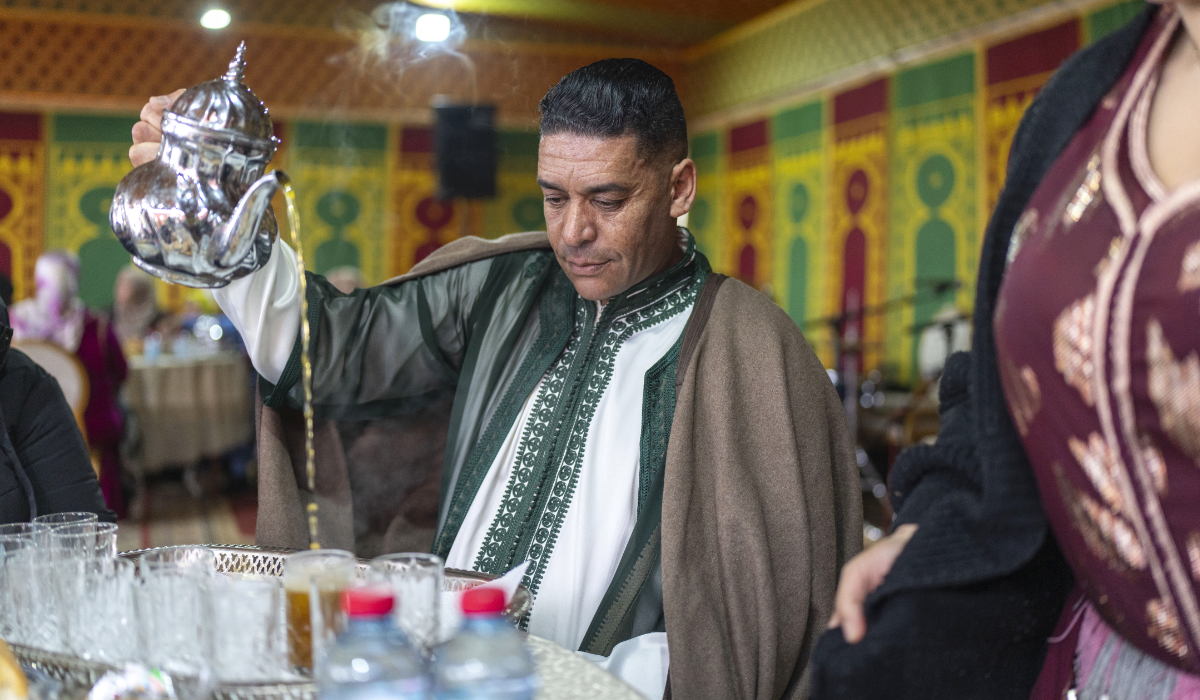LONDON: Manchester City and Aston Villa made big moves just before the midseason transfer window closed on Monday.
Four-time defending Premier League champion City secured a late deal for Porto midfielder Nico Gonzalez for a reported $60 million, while three-time Champions League winner Marco Asensio joined Villa on loan to the end of the season.
Uncertainty over Bayern Munich forward Mathys Tel finally ended when he completed a loan move to Tottenham with the option of a permanent deal in the summer.
Paris Saint-Germain was one of the most active clubs during the window by signing Khvicha Kvaratskhelia from Napoli, and releasing several players.
Man City go big to salvage season
City usually make their moves in the offseason. But in a bid to rescue a campaign that unraveled at the end of last year and was derailed again in a 5-1 loss at Arsenal, City spent big in January on five new signings. Gonzalez took City outlay past $200 million.
City signed Egypt forward Omar Marmoush for $73 million and defenders Abdukodir Khusanov from Lens and Vitor Reis for a combined $77 million. Christian McFarlane, an 18-year-old left back, joined from sister club New York City FC while captain Kyle Walker left for AC Milan.
Gonzalez’s arrival finally gives City a defensive midfielder in the mold of Rodri — the Ballon d’Or holder who was ruled out of the season in September by an ACL injury.
The Premier League title looks well beyond City, who are 15 points behind leaders Liverpool, and a Champions League bid has been made extra difficult after being drawn against holder Real Madrid in the playoffs. But City manager Pep Guardiola will hope the new additions can return the club to the Champions League next season.
PSG re-enter the ‘galactico’ market
Paris Saint-Germain has lost much of their star appeal in recent years following the departures of Lionel Messi, Neymar and Kylian Mbappe. A shift in strategy has seen the Qatar-backed club focus more on younger and French talents rather than superstar names.
But the Kvaratskhelia deal for a reported fee of around $72 million represents another marquee signing.
The Georgia forward isn’t at the level of Messi and Neymar but he has long been among the most sought-after players in Europe with thrilling, match-winning qualities.
PSG offloaded striker Randal Kolo Muani — a $101 million signing last season — to Juventus on loan, and central defender Milan Skriniar to Fenerbahce, and Asensio.
Villa’s Champions League push
Through to the Champions League last 16, Aston Villa boosted their attacking options in the form of Marcus Rashford and Asensio.
Rashford was one of the big stories of the window after falling out of favor at Manchester United. Despite being linked with clubs across Europe, as well as Saudi Arabia, he secured a loan to Villa for the rest of the season.
If Unai Emery can get the best out of the former England international, he could prove an inspired signing in terms of Villa’s Champions League campaign and push for a top four finish. Meanwhile, in former Real Madrid forward Asensio, Villa has a player with Champions League-winning knowhow.
Saudi recruitment stalls?
Neymar’s high-profile move to Saudi Arabia was cut short last week when the Brazil great’s contract was terminated by Al-Hilal and he left for boyhood club Santos.
Along with Cristiano Ronaldo and Karim Benzema, the former Barcelona and PSG superstar was a standout signing as Saudi Arabia launched a recruitment drive to lure the world’s top players. But injury meant Neymar was reduced to seven games for Al-Hilal following his 2023 move for a reported $98 million and his departure brought an underwhelming end to his time in the Kingdom.
Previously, Jordan Henderson left Al-Ettifaq after just six months to join Ajax, and Portuguese forward Jota spent a year at Al-Ittihad before leaving for French team Rennes. Jota rejoined Celtic during this window.
The big signing for the Saudi league during this window was Jhon Duran, the Colombia striker who joined Ronaldo’s Al-Nassr from Villa for a reported £64 million ($80 million).
Perhaps bigger is to come in the future, with Liverpool’s Mohamed Salah out of contract at the end of the season and repeatedly linked with a move.
Relief for Barcelona
Rather than bringing in new players, Barcelona’s biggest challenge was registering two it already owned.
Dani Olmo and Pau Víctor were registered only after the government sports authority intervened. The Spanish league and the federation had denied Barcelona’s request to re-register the duo because it missed the end-of-year deadline to comply with salary cap rules.
Barcelona accused the league of making unrealistic requests for extra documentation and said payment for VIP seating at the new Camp Nou stadium became available only on Jan. 3. That payment allowed the club to comply with the league’s financial fair play rules.
Major moves in women’s soccer
The deals are getting bigger in women’s soccer.
US defender Naomi Girma became the first million-dollar player in the women’s game when she moved from the San Diego Wave to Chelsea, which also spent big to bring England midfielder Keira Walsh back to the Women’s Super League from Barcelona.
The deadline for the women’s game passed last week.































